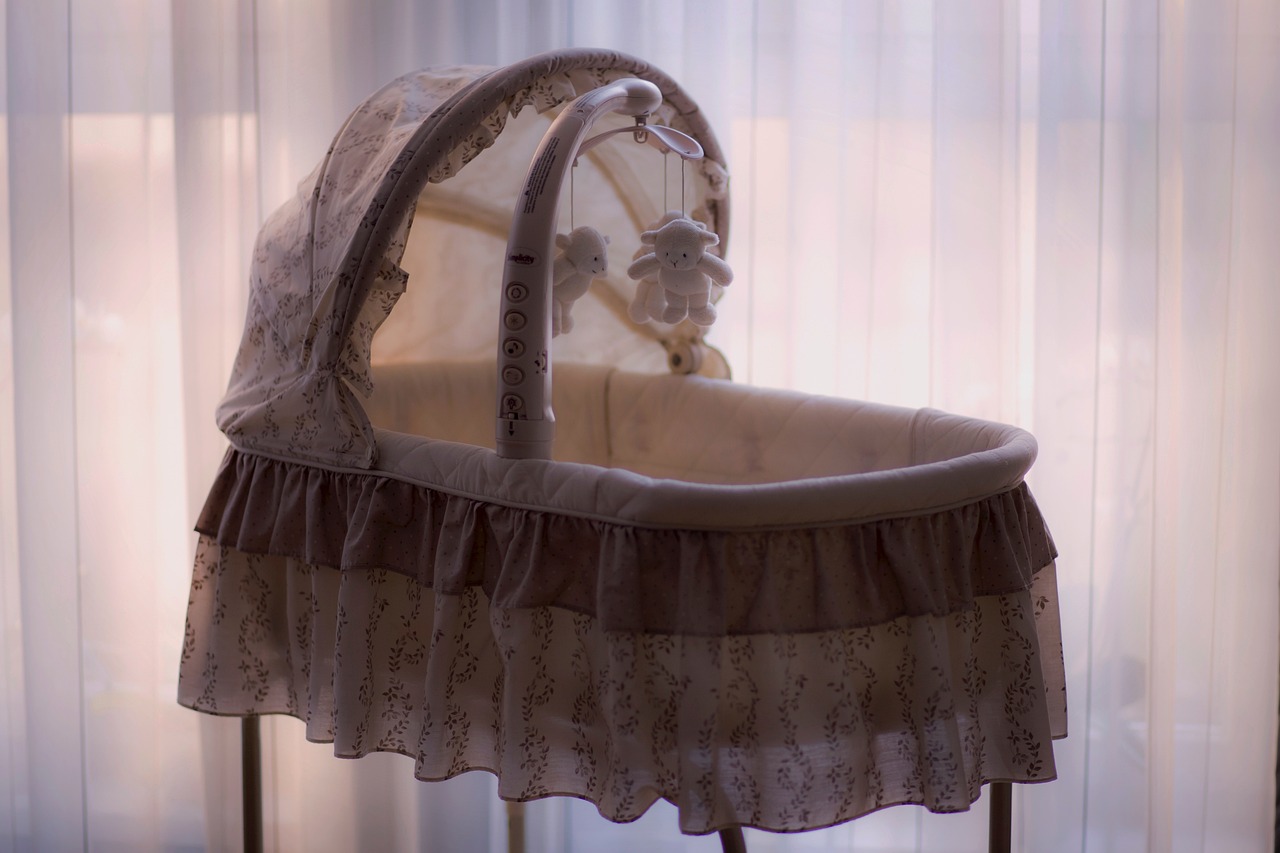Understanding Bassinet
Definition and Purpose
Baby Sleep in a Baby Delight Bassinet for the longest time, up to around four to six months. This is because the bassinet is cosy and safe. It helps babies sleep the best. So, for the safest sleep, babies can stay in the bassinet for many months.
How long will infants sleep in the plush Baby Delight crib? It’s the cosiest spot for your child to nap, and I can assure you of that. How long, though, can they stay in this comfortable bed? Together, let us investigate.
A baby can sleep best in a Baby Delight bassinet for four to six months. Safe and comfortable, this bassinet. Babies that use it sleep better. It makes them feel relaxed and secure. As a result, infants can sleep.
Types of Bassinets
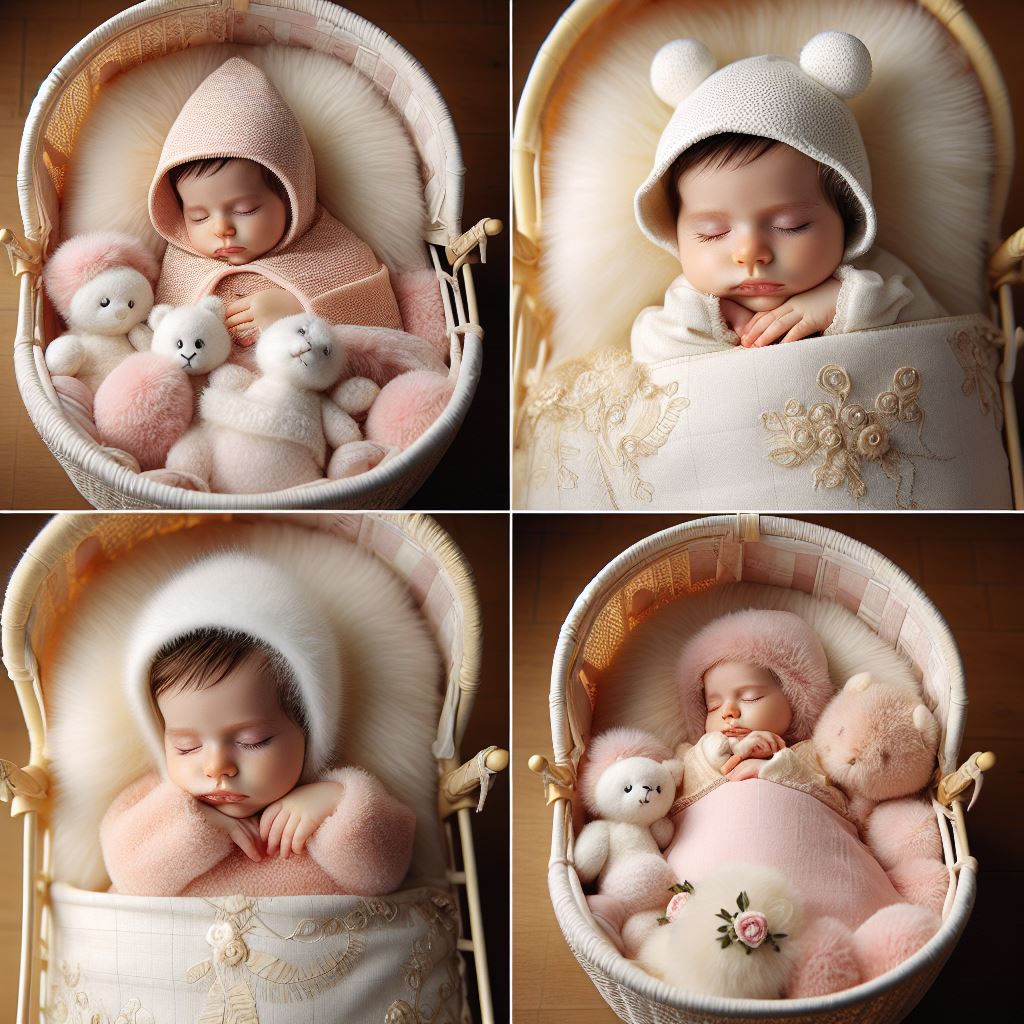
Bassinets are available in various sizes and designs depending on your infant’s characteristics. The closest to the parent’s bed, bedside bassinets are simpler. Nocturnal feedings are comforting. Moses baskets are cosy and convenient for babies, due to their compact design and lightweight build.
Because freestanding bassinets are portable and can be moved around the house,. Your baby may sleep no matter where you are. Finally, convertible bassinets maximize their usefulness as your baby develops. They can be converted into other baby furniture, such as a changing table or rocking cradle. With these selections, Parents may choose the ideal bassinet to suit their baby’s sleeping needs.
Types of Bassinets Table
| Type | Description |
| Bedside Bassinets | Closest to parent’s bed, facilitating nighttime care |
| Moses Baskets | Cozy and portable, perfect for newborns |
| Standalone Bassinets | Versatile and movable, suitable for various locations |
| Convertible Bassinets | Adaptable, transforming into other baby furniture |
Features of Baby Sleep in Delight Bassinet
Description of Baby sleep in Baby Delight Bassinet
A comfortable bed for infants is the Baby Delight bassinet. Its mattress is relaxed, and its sides are soft. It’s the most comfortable spot for infants to sleep. Babies are content and safe in a bassinet. Its sides are solid and immobile. Moreover, parents can carry it with ease. For young children, the Baby Delight bassinet is the ideal bed.
KEY Features And Benefits of baby Sleep In Baby Delight Bassinet
- Here are some cool things about the Baby Delight bassinet:
- It’s portable and easy to move around.
- It’s quick and straightforward to set up.
- It has storage pockets for keeping things nearby.
Safety Guidelines
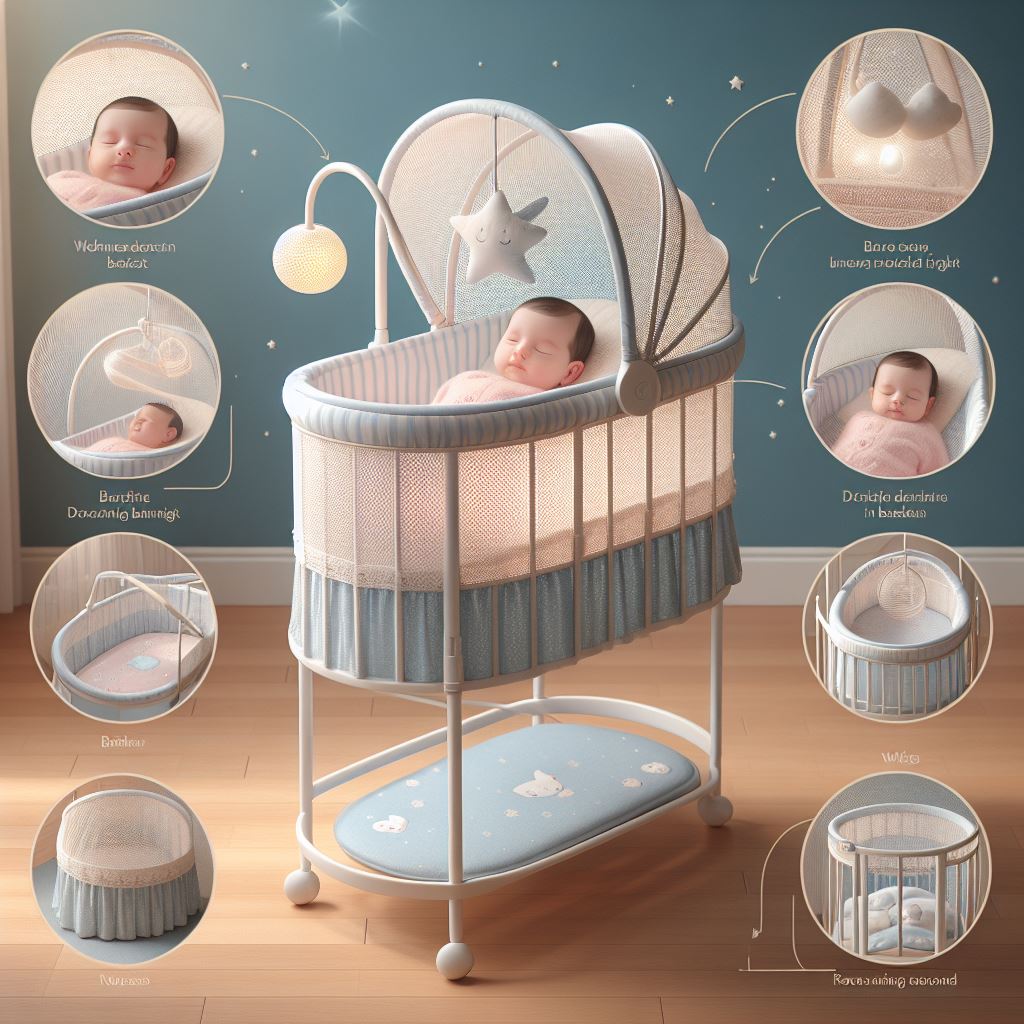
Recommended Sleeping Duration
Following safety recommendations is crucial when determining. How long should babies sleep in their bassinets? According to paediatricians, infants need more sleep than adults do. Newborns are said to sleep for the most extended periods—14 to 17 hours each day. Even though babies’ sleep needs decrease as they get older, Getting adequate sleep is still crucial for their development.
The Baby Delight bassinet is about keeping babies safe and comfy during sleep. It’s made with solid materials to keep babies snug. Plus, it’s got mesh sides so that babies can breathe. Here are some cool features:
- Portable and easy to move
- Safe and sturdy design
- Adjustable height for convenience
Safe Sleeping Practices
Back to Sleep: Always place your baby on their back to sleep to reduce the risk of SIDS.
Firm Surface: To avoid suffocation risks, make sure the bassinet mattress is firm and fits.
Room Sharing: For the first six months. Share a room with your infant to make nighttime feeding and supervision easier.
Duration of Sleep
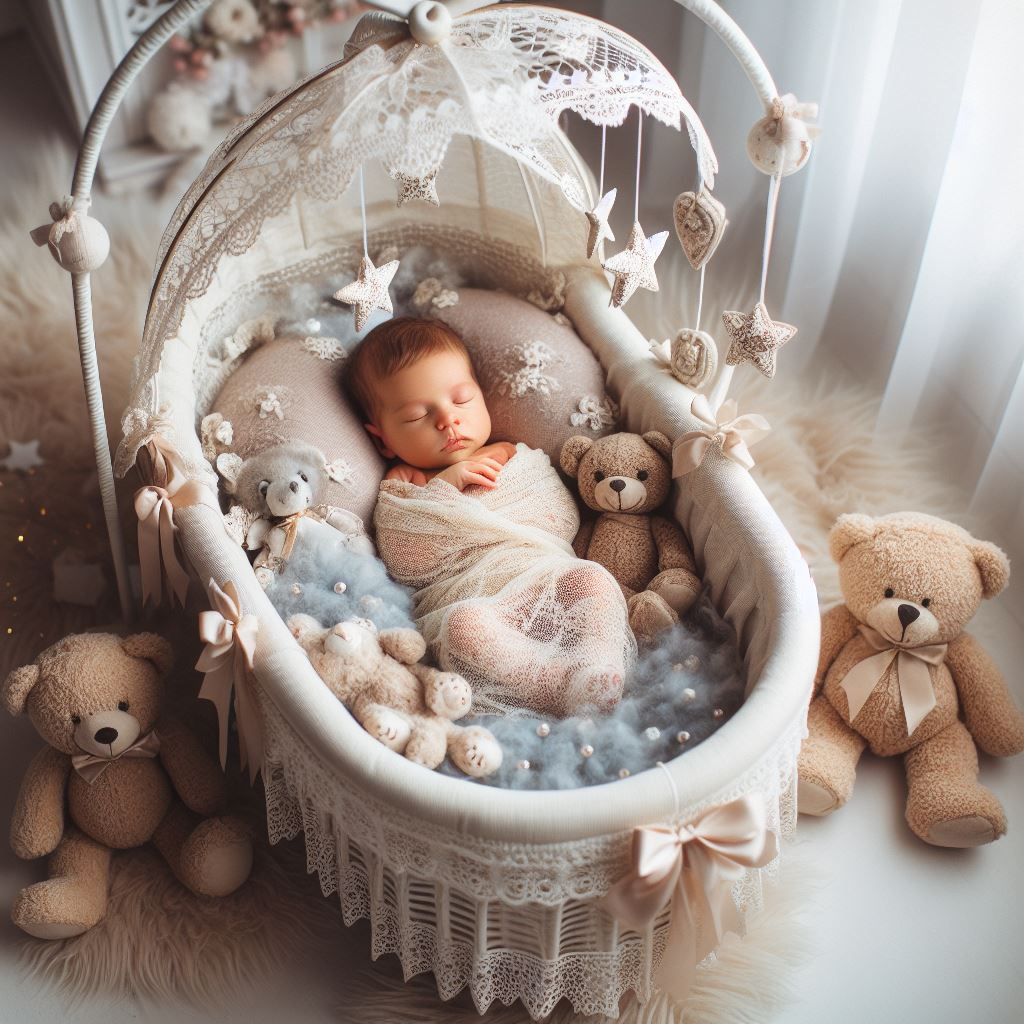
Regular Sleep Patterns for Infants
Parents need to understand how much sleep a baby gets and how they sleep. To begin with, babies sleep a lot—up to 17 hours every day! After that, they sleep in brief spurts and wake up to eat. They continue to take regular naps during the day but begin sleeping longer at night.
Factors Affecting Sleep Duration
Babies’ sleep durations vary for a variety of reasons. First, hunger, as a baby’s demand for frequent feedings, causes sleep disturbances. Second. Discomforts like colic or damp diapers can prevent them from getting enough sleep. Illnesses like congestion or teething might also bring on restlessness. Environmental elements that interfere with sleep quality include bright lights and noise. Finally. Extended naps. And nighttime. Sleep is an expected outcome of growth spurts, which raise sleep requirements.
Here’s a simple table showing the recommended sleep duration for infants:
| Age Range | Recommended Sleep Duration |
| 0-3 months | 14-17 hours per day |
| 4-6 months | 12-16 hours per day |
| 7-12 months | 11-15 hours per day |
Understanding these patterns helps parents adjust routines and provide optimal sleep environments for their little ones.
Monitoring Sleep
Signs of Discomfort or Awakening
You must watch over your infant as they sleep. Observe their facial expressions and body language first. When they begin to wriggle or squirm, take note of it. Pay attention to any noises they may produce, such as whimpers or growls. Check whether they respond after that by giving them a little touch. In case they appear uneasy or agitated. Attempt to lull them back to sleep by giving them a soft pat or using reassuring language.
Infants may display symptoms of discomfort or wakefulness throughout their slumber. Track this by watching for any changes in their respiratory patterns. Furthermore, look for abrupt motions or jerks that can be signs of awakening. Additionally, pay attention to any fussiness or crying. Recall that ensuring your. A restful night’s sleep is possible by paying attention to their sleep cues.
Tips for Ensuring Uninterrupted Sleep
Establish a Routine: Stick to a consistent bedtime routine to signal your baby that it’s time to sleep.
Create a calm environment. To encourage sound sleep. Turn down the lights, and keep the temperature in the room. And make as little noise as possible.
Transition to Crib
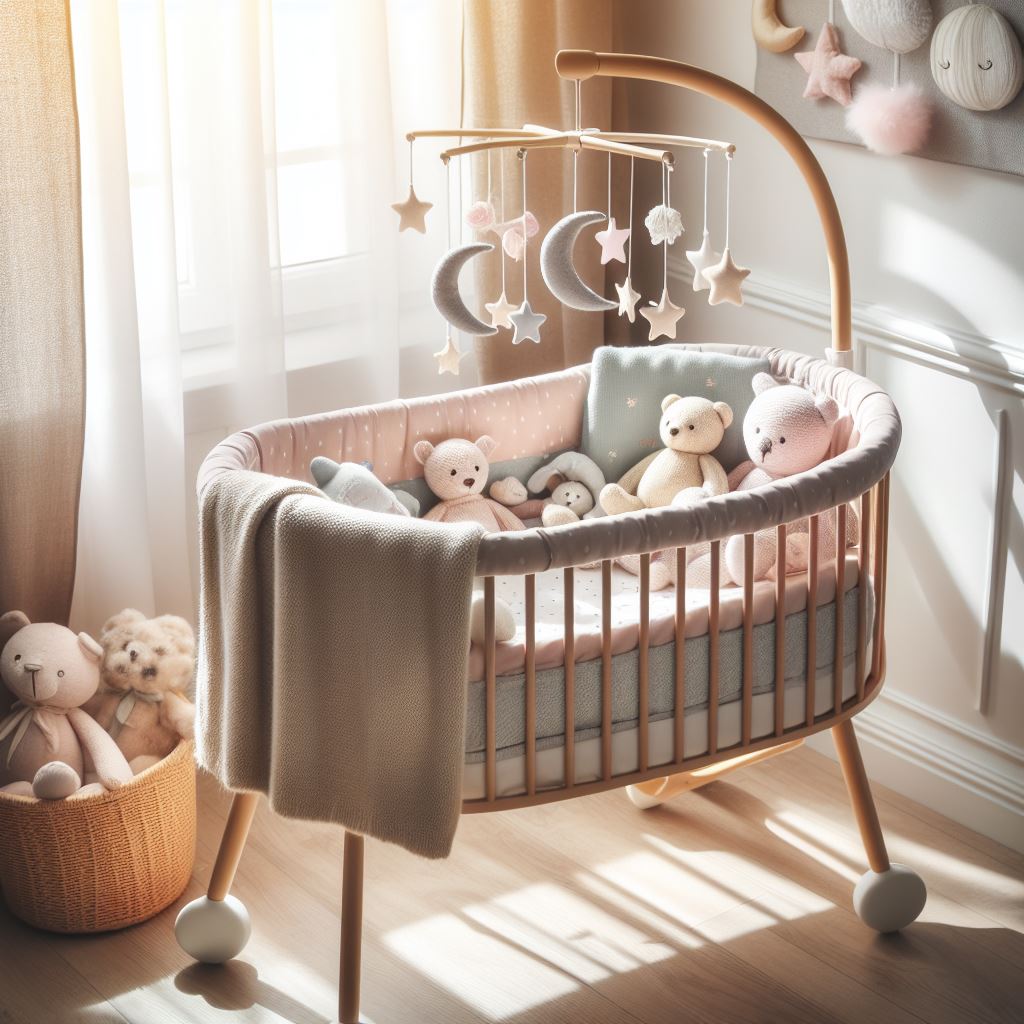
When to Transition
For babies, moving from a stroller to a crib may be quite the change. It’s time for a crib once they get comfortable resting in a comfy bassinet. Making the crib familiar is the following way parents may assist. They can even share the same toys and bedding.
Make it cosy: Put familiar blankets and toys.
Introduce gradually: Start with naps in the crib.
Stay close: Keep the crib near the parents’ bed at first.
FAQs
How long can a baby sleep in a bassinet?
Babies can sleep in a bassinet until they outgrow it or start showing signs of rolling over, usually around four to six months old.
Is it safe for babies to sleep in a bassinet overnight?
Yes, bassinets are made to give babies a safe place to sleep. But it’s crucial to follow the recommended sleep hygiene practices.
Do bassinets help babies sleep better?
For some babies. A bassinet can offer a comfortable little place that resembles the womb and helps them. Sleep better.
Can I use a bassinet for co-sleeping with my baby?
Although certain bassinets are intended for use by the bed, It’s essential to adhere to safety precautions to lower the possibility of suffocation or harm.
How often should I check on my baby while they’re sleeping in a bassinet?
It’s advised to check on your infant from time to time to make sure they’re sleeping, especially in the early months.
Conclusion
The safest and cosiest places for babies to sleep are, in summary, baby joy bassinets. Babies can have the finest sleep possible since. They offer a warm and comfortable sanctuary—these bassinets, with their solid edges and comfy mattresses. Reassure babies as they sleep.
Parents may move them around to enhance their convenience. Further and keep necessary objects nearby. Parents may ensure their little. One gets uninterrupted sleep, which promotes healthy growth. Development by adhering to safety requirements and paying. Pay attention to their baby’s sleep cues. Baby Delight bassinets are, thus—the best option for providing babies with a comfortable place to sleep.
